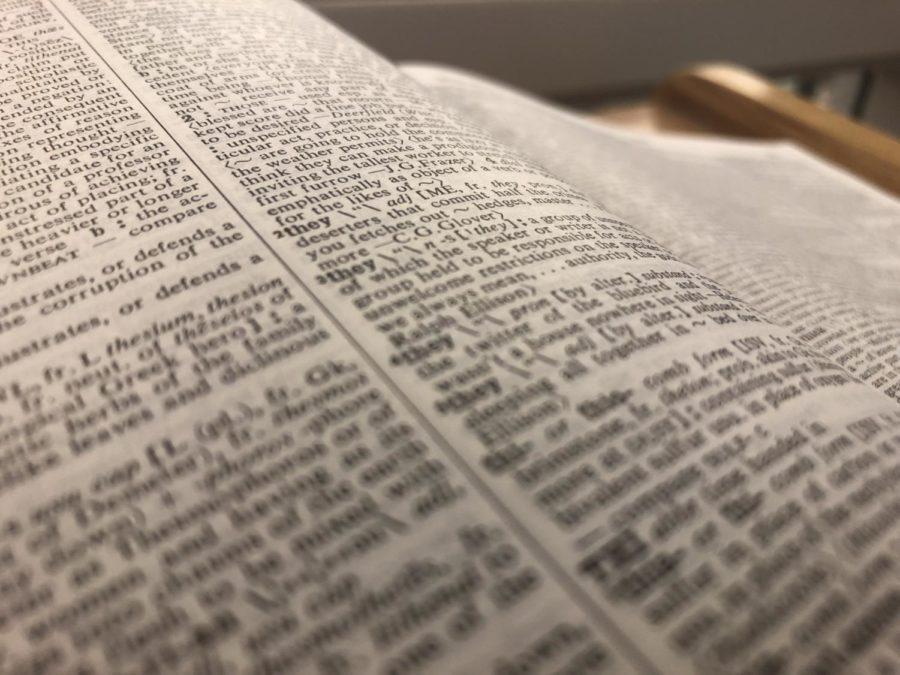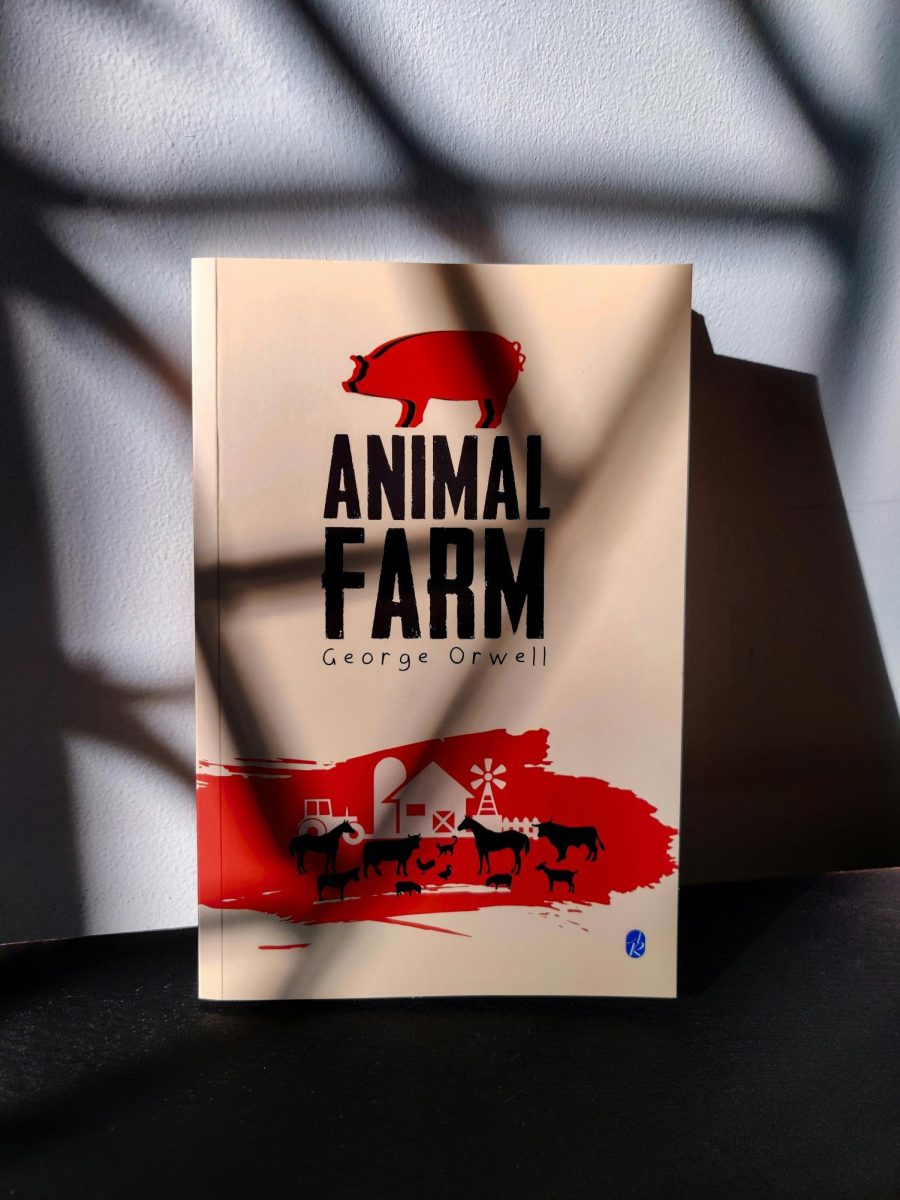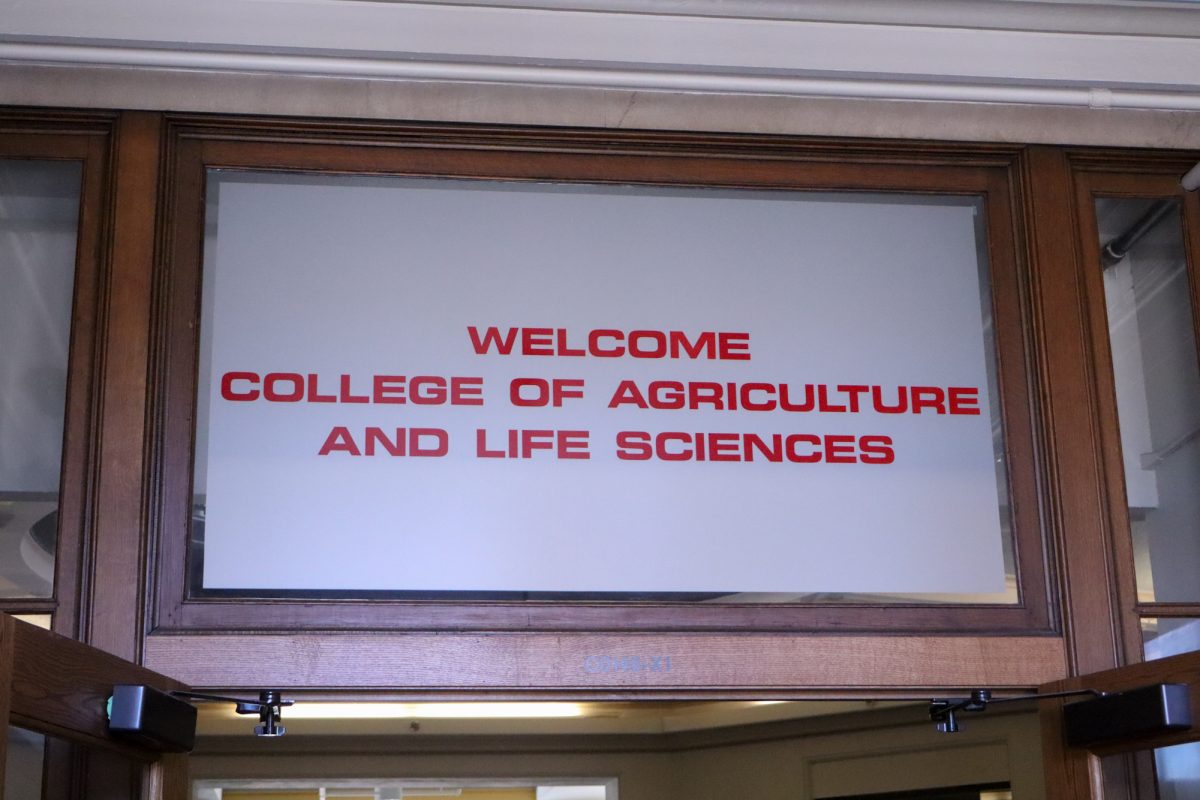Merriam-Webster creates visibility with addition of “they” pronoun
Logan Metzger/ Iowa State Daily
Merriam-Webster dictionary added the singular “they” to its dictionary on Sept. 16. The definition states “they” may be used to refer to a “single person whose gender is nonbinary.” Other words recently added include “you” as a pronoun and “inclusive.”
September 23, 2019
A dictionary near and dear to many English scholars’ hearts, Merriam-Webster, has recently added more than 530 new words, one of them being the pronoun “they.”
Merriam-Webster added a new definition of the word “they” to its dictionary, declaring the pronoun may be used to refer to a “single person whose gender identity is nonbinary.”
“I can’t answer for everyone, but to me it’s a pretty big deal,” said Trinity Dearborn, president of Pride Alliance and senior in women’s and gender studies. “It’s outrageous how many times I’ve heard the argument about my pronouns being invalid because I am not more than one person. It’s a good step in the right direction with normalizing pronouns, and hopefully the next step is with neopronouns. It makes me happy that someday a child could look at a dictionary and be like, ‘Wow, this feels right to me,’ and won’t have to grapple with outside resources, which of course are still important and definitely needed.”
Though the term “they” is a liberating pronoun for many nonbinary individuals who identify as genders other than male or female, others think the use of “they” as a singular pronoun is ungrammatical and confusing.
To combat this idea of the singular “they” pronoun being ungrammatical, Merriam-Webster published a blog post explaining how “they” has been used in a singular pronoun form for a lot longer than many people may think.
“The answer to the question of why is no different than it is for any other word,” the blog post stated. “All new words and meanings that we enter in our dictionaries meet three criteria: meaningful use, sustained use and widespread use. Non-binary ‘they’ has a clear meaning; it’s found in published text, in transcripts and in general discourse; and its use has been steadily growing over the past decades. English speakers are encountering non-binary ‘they’ in social media profiles and in the pronoun stickers applied to conference badges. There’s no doubt that it is an established member of the English language, which means that it belongs in Merriam-Webster’s dictionaries.”
During the blog post, Merriam-Webster pointed out how nonbinary “they” takes a plural verb, despite its singular referent, which the post said “can make the grammatically conservative uncomfortable.”
Another pronoun that has taken this journey is the pronoun “you,” which was initially plural. This is why it, too, takes the plural verb even when it’s referring to a single person. “You are” has been grammatical for centuries, even when the “you” is an individual.
“The [English] language’s lack of an exclusive gender-neutral pronoun is a famous deficit, and ‘they’ has been quite ably filling in for more than 600 years,” the blog post stated. “Its use largely goes unnoticed in such constructions as ‘No one has to use it if they don’t want to’, a use that has long been covered in our dictionaries, and it’s quite possible that the non-binary ‘they’ is headed for a similarly unremarkable fate.”
Within the online dictionary page for “they,” Merriam-Webster has included a usage guide when it comes to using they/them/theirs as pronouns when referring to a gender neutral person.
Within this short guide, Merriam-Webster points out multiple usages of the term throughout history by various authors.
“I would have everybody marry if they can do it properly” — Jane Austen
“’Tis meet that some more audience than a mother, since nature makes them partial, should o’erhear the speech” — William Shakespeare
“It is too hideous for anyone in their senses to buy” — W. H. Auden
Merriam-Webster also added two other words centering around race and identity.
“On a more serious note, several new entries are for words that address the complex ways we view ourselves and others and how we all fit in,” Merriam-Webster said during its announcement of the new words.
The first word is “inclusive”, which Merriam-Webster defined as “allowing and accommodating people who have historically been excluded (because of their race, gender, sexuality, or ability).”
The second word is “colorism” which Merriam-Webster defined as “prejudice or discrimination especially within a racial or ethnic group favoring people with lighter skin over those with darker skin.”
“I think it’s great in terms of visibility and recognition, but it also feels a bit like empty activism,” Dearborn said. “For some, this is huge and for others it’s not a big deal. A dictionary will not affect my gender identity or what pronouns I chose to use.”







